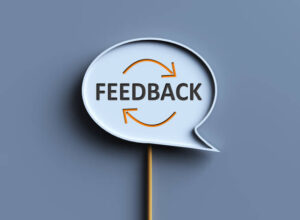Introduction
Managing the performance of remote teams presents unique challenges and opportunities. Unlike traditional office settings, remote teams operate without physical oversight, making it essential to establish clear, effective performance management strategies. In this blog post, dear Future-Forward Freelancers, we’ll explore tips for evaluating and providing feedback to remote teams, ensuring they stay motivated, productive, and aligned with organizational goals.
The Importance of Performance Management in Remote Teams
Effective performance management is crucial for maintaining productivity, employee satisfaction, and overall team success. It involves setting clear expectations, monitoring progress, and providing regular feedback. For remote teams, this process requires special attention to communication and trust-building to overcome the challenges of distance and isolation.

Tips for Evaluating Remote Team Performance
1. Set Clear Goals and Expectations
Clarity is key to remote team success:
- SMART Goals: Ensure goals are Specific, Measurable, Achievable, Relevant, and Time-bound.
- Role Clarity: Clearly define roles and responsibilities to prevent overlap and confusion.
- Documentation: Maintain written records of goals, expectations, and performance criteria.

2. Utilize Performance Metrics
Quantifiable metrics provide an objective basis for evaluation:
- KPIs: Establish Key Performance Indicators relevant to each role and project.
- Regular Tracking: Use project management tools like Asana, Trello, or Jira to track progress and performance.
- Real-Time Data: Implement tools like Hubstaff or Time Doctor to monitor work hours and productivity.
3. Regular Check-Ins and Reviews
Frequent communication helps keep everyone on track:
- Weekly Meetings: Hold regular team meetings to discuss progress, address challenges, and plan ahead.
- One-on-One Meetings: Schedule individual check-ins to provide personalized feedback and support.
- Quarterly Reviews: Conduct formal performance reviews quarterly to evaluate overall progress and set new goals.

4. Gather 360-Degree Feedback
Comprehensive feedback provides a well-rounded view of performance:
- Peer Reviews: Encourage team members to provide feedback on each other’s performance.
- Client Feedback: Incorporate feedback from clients or stakeholders to gauge external perceptions of performance.
- Self-Assessments: Have team members evaluate their own performance to promote self-awareness and accountability.
5. Leverage Technology
Technology can streamline performance management processes:
- Performance Management Software: Tools like Lattice, 15Five, or BambooHR can automate and organize performance evaluations.
- Communication Platforms: Use Slack, Microsoft Teams, or Zoom for effective and continuous communication.
- Collaboration Tools: Utilize Google Workspace or Microsoft Office 365 for seamless document sharing and collaboration.
 Tips for Providing Effective Feedback
Tips for Providing Effective Feedback
1. Be Specific and Constructive
Clear, actionable feedback is more effective:
- Specific Examples: Use specific examples to illustrate points, making feedback more relatable and understandable.
- Balanced Approach: Balance positive feedback with constructive criticism to maintain morale.
- Actionable Suggestions: Provide clear, actionable suggestions for improvement.
2. Timely Feedback
Prompt feedback is more impactful and helps reinforce desired behaviors:
- Immediate Recognition: Acknowledge achievements and address issues as they arise, rather than waiting for formal reviews.
- Regular Updates: Incorporate feedback into regular check-ins to ensure continuous improvement.
3. Encourage Two-Way Communication
Feedback should be a dialogue, not a monologue:
- Open Discussions: Encourage team members to share their thoughts and concerns during feedback sessions.
- Active Listening: Practice active listening to understand their perspective and foster a supportive environment.
- Feedback Loop: Establish a feedback loop where team members feel comfortable giving feedback to managers as well.

4. Focus on Growth and Development
Use feedback as a tool for professional development:
- Growth Mindset: Promote a growth mindset by framing feedback in the context of learning and improvement.
- Development Plans: Create individualized development plans that outline steps for skill enhancement and career progression.
- Training Opportunities: Provide access to training and development resources, such as online courses, workshops, or mentorship programs.
5. Recognize and Reward Achievements
Recognition can boost morale and motivation:
- Public Acknowledgment: Celebrate achievements in team meetings or through company-wide announcements.
- Incentives: Offer incentives such as bonuses, gift cards, or additional time off as rewards for exceptional performance.
- Personalized Recognition: Tailor recognition to individual preferences to make it more meaningful.
What strategies have you found effective for managing remote team performance? Share your tips and experiences in the comments below. Let’s build a community of shared knowledge to improve performance management in remote teams!
Real-Life Success Stories
Let’s check out real life stories of organizations that have been able to navigate remote team performance management:
Case Study 1: Tech Startup
A tech startup with a fully remote team implemented a performance management system using OKRs (Objectives and Key Results) and a performance management software. Regular one-on-one meetings and quarterly reviews helped align individual goals with company objectives. The use of real-time performance metrics and continuous feedback led to a significant increase in productivity and employee engagement.
Case Study 2: Marketing Agency
A remote marketing agency faced challenges in providing timely feedback. They adopted a 360-degree feedback system and scheduled bi-weekly team meetings. This approach fostered a culture of continuous improvement and open communication. By leveraging project management tools, they streamlined task tracking and performance evaluation, resulting in improved project delivery and client satisfaction.
Conclusion
Effective performance management in remote teams requires clear goals, regular communication, and constructive feedback. By setting clear expectations, utilizing performance metrics, fostering open dialogue, and leveraging technology, HR professionals can ensure their remote teams stay productive and motivated. Recognizing achievements and focusing on growth and development further enhance team performance and satisfaction.
Dr. Temitope Okeseeyin,
University of Freelancing.
https://www.betterworks.com/magazine/better-performance-management-for-remote-teams/
https://universityoffreelancing.org/effective-remote-team-management-strategies-for-success/



